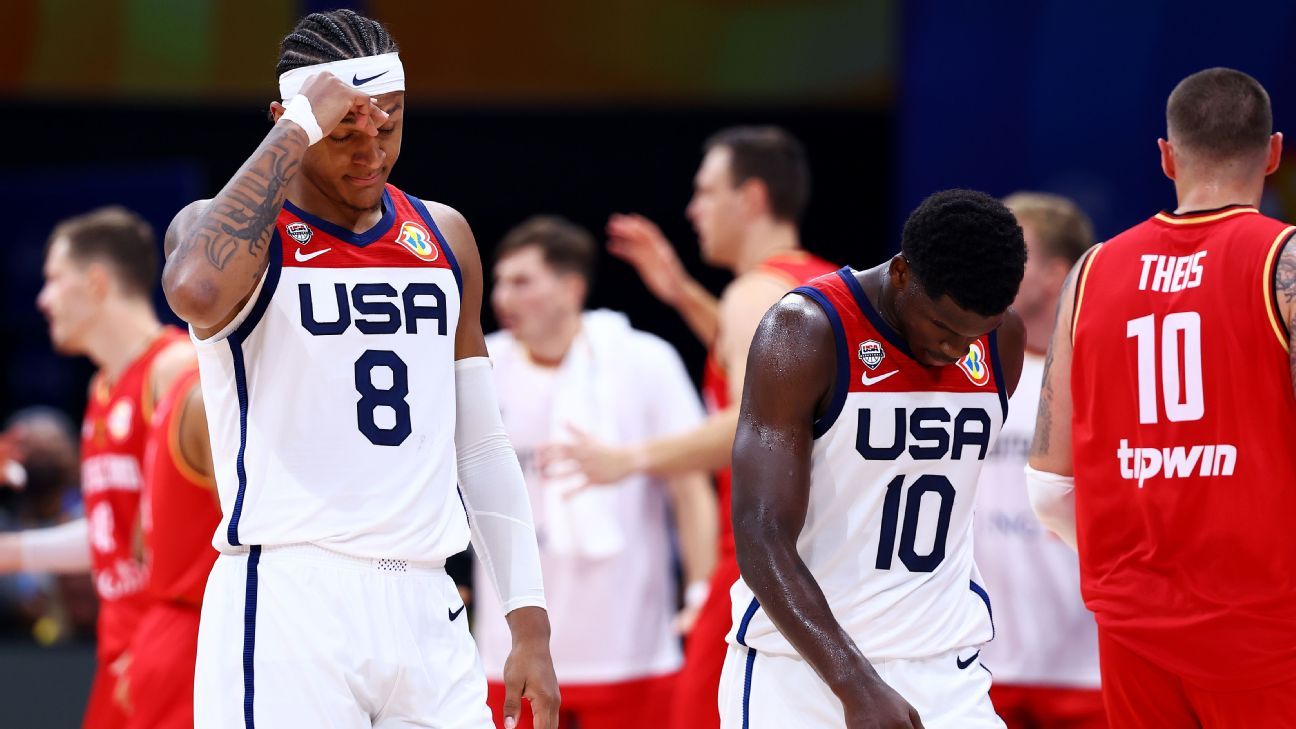Germany ends USA's FIBA World Cup run in semifinals
Written by I Dig Sports
MANILA, Philippines -- When Team USA assembled its roster and decided on its game plan for this World Cup cycle, it made a bet. It was a sensible bet, and the Americans stacked the deck as much as they could to try to win it, but the reality was they entered knowing they left themselves exposed.
That wager -- that size differential could be overcome with other attributes -- has failed. Germany, another European team that towered over the Americans, used the given advantage and beat Team USA 113-111 in the world semifinals Friday.
It will deny the Americans gold in the event for a second consecutive time. They will settle for playing for bronze Sunday (ESPN2, 4:45 a.m. ET) against Canada, which lost to Serbia in the day's other semifinal.
The U.S. played a spirited and aggressive game. The team was just too small, and it showed up repeatedly, just as it did against Lithuania last weekend in the previous loss.
"They've got a lot of big strong guys," Team USA coach Steve Kerr said. "They put a lot of stress on your defense and just give them credit, they outplayed us."
Germany was simply able to get more chances to score because it often was able to get the ball back when it missed. The Germans pulled down 12 offensive rebounds, leading to 25 second-chance points (Team USA had eight).
But they didn't miss that often. Point guard Dennis Schroder, when he's in a passing mood, was a weapon against the U.S. because he's skilled enough to handle its ball pressure. Combined with the German height advantage, it led to a flow of high-percentage looks.
And that was not survivable.
"We got outrebounded all night," said guard Anthony Edwards, who had 23 points and tried to lead a late comeback. "They were more physical than us."
The U.S. cut the lead to one in the final two minutes after Germany got up by as much as 12. But a 3-pointer by Andreas Obst, that last of his 24 points and four 3-pointers, held off the American charge.
There were some mismatches created when the U.S. switched on screen-and-rolls. Packing the paint defensively to try to deal with the size issue led to the Germans getting some good looks from outside, and they absolutely made the U.S. pay, nailing 13 of 30 3-pointers.
This led to Germany shooting a sizzling 58% overall and racking up 50 points in the paint.
In addition to Schroder, who finished with 17 points, the German NBA big men feasted. Franz Wagner finished with 22 points and Daniel Theis had 21.
"If you give up 113 points in a 40-minute game, you're not going to win many of those," said Austin Reaves, who had 21 points. "Anytime you lose sucks."
Kerr started small all tournament, going with Josh Hart at power forward and Jaren Jackson Jr. at center. Then he stayed small as he did all tournament, going with Paolo Banchero as a backup big man and leaving the only true center selected for the roster, Walker Kessler, out of the rotation.
Under the correct circumstances, Team USA can and did win with this alignment. But one of those factors has to be an aggressive and fast-break-generating defense.
But the margin for error was not feasible. Even with an extremely favorable draw that gave it travel and opponent advantages, there was just too much size to mitigate.
Team USA played without Brandon Ingram, who missed the game with an upper respiratory illness. It was the first missed game in the tournament due to injury or illness for the team.
Anthony Edwards led Team USA with 23 points and Mikal Bridges added 17.
"We're expected to win, I guess, year in and year out. We're expected to win just because of the history that USA basketball," said Jalen Brunson, who had 15 points and seven assists. "We obviously didn't come to play ready to play from the start."















 Phone: (800) 737. 6040
Phone: (800) 737. 6040 Fax: (800) 825 5558
Fax: (800) 825 5558 Website:
Website:  Email:
Email: 






